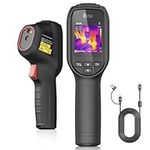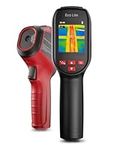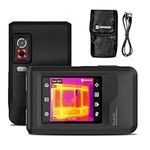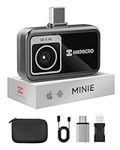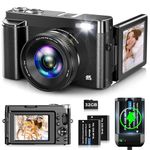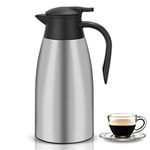10 bestThermal Camerasof February 2026
112M consumers helped this year.
10% off
1
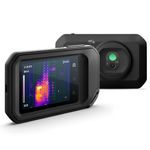
FLIR C5 Compact Thermal Imaging Camera with Wifi: High Resolution Infrared Imager for Inspection, Electrical/Mechanical, Building, and HVAC Applications
FLIR

10.0
2
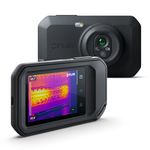
FLIR C8 Compact Thermal Imaging Camera: High Resolution Infrared Imager (320x240) for Inspection, Electrical/Mechanical, Building, and HVAC Applications
FLIR

10.0
3
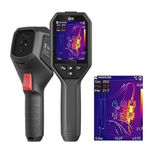
HIKMICRO B10 256 x 192 IR Resolution Thermal Imaging Camera with 2MP Visual Camera, Full Screen Measurement, 25 Hz Refresh Rate Handheld Thermal Camera with 3.2" LCD Screen, IP54, -20 °C ~550 °C
HIKMICRO
Editor’s Choice

9.9
4

HIKMICRO ECO Thermal Camera SuperIR Resolution 240x240, SuperScene™, -20°C to 550°, 25Hz Refresh Rate, Portable Handheld Infrared Thermal Imaging camera with Laser Pointer, 3350mAh Battery
HIKMICRO
Editor’s Choice

9.8
5
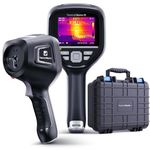
Thermal Imaging Camera Thor 002 Infrared Camera X³ Super IR Resolution 512x384 Visual Camera 3.5 Inch IPS Screen 640x480 Handheld Thermal Camera with PC Image Analysis, -20°C to 550°C (Thor 002)
Thermal Master

9.7
OtherUp to 15% off
6
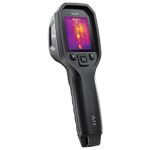
FLIR TG267 Thermal Imaging Camera with Bullseye Laser: Commercial Grade Infrared Camera for Building Inspection, HVAC and Electrical
FLIR

9.6
7
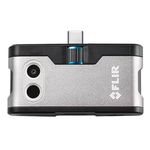
Flir One - Thermal Imaging Camera for Android Smartphones (USB-C), 240x180 Super Resolution (80x60 Native IR)
FLIR

9.5
10% off
8
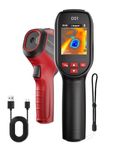
HIKMICRO D01 Thermal Camera, 240x240 Super Resolution, SuperScene Smart Scene Recognition, 96x96 IR Resolution Therma Imaging Camera, 3350mAh for 11hrs Battery Life, Photo and Video Recording, 50° FOV
HIKMICRO
Editor’s Choice

9.4
9
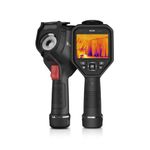
HIKMICRO M11W Professional Thermal Imaging Camera 192 x144 IR Resolution with 8Mp Visual Camera, Wide FOV, Wi-Fi Thermal Imager with 25 Hz Refresh Rate
HIKMICRO
Editor’s Choice

9.2
10
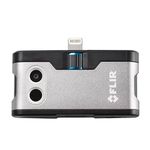
Flir One - Thermal Imaging Camera for iOS Smartphones (iPhone 14 and Older w/Lightning Port), 240x180 Super Resolution (80x60 Native IR)
FLIR

9.1
A Guide to Selecting the Best Thermal Cameras
When choosing a thermal camera, it's important to understand that these devices are used to detect heat and create images based on temperature differences. They are widely used in various fields such as building inspections, electrical maintenance, and even wildlife observation. The key to selecting the right thermal camera is to consider the specific needs of your application, as different models offer varying features and capabilities. Understanding the key specifications will help you make an informed decision that best suits your requirements.
Resolution
Resolution in thermal cameras refers to the number of pixels in the thermal image. A higher resolution means more pixels, which results in a clearer and more detailed image. This is important because it allows you to see finer details and detect smaller temperature differences. Resolutions can range from low (80x60 pixels) to high (640x480 pixels or more). If you need to inspect small components or require detailed images, opt for a higher resolution. For general use or larger targets, a lower resolution may suffice.
Thermal Sensitivity (NETD)
Thermal sensitivity, also known as Noise Equivalent Temperature Difference (NETD), measures the smallest temperature difference a camera can detect. It is expressed in millikelvins (mK). A lower NETD value indicates higher sensitivity, meaning the camera can detect smaller temperature differences. This is crucial for applications requiring precise temperature measurements, such as electrical inspections or research. If your work involves detecting subtle temperature changes, choose a camera with a lower NETD. For less demanding tasks, a higher NETD might be adequate.
Temperature Range
The temperature range of a thermal camera indicates the minimum and maximum temperatures it can accurately measure. This is important because it determines the suitability of the camera for different environments and applications. Temperature ranges can vary widely, from -20°C to 150°C for basic models, up to 2000°C or more for advanced models. Consider the typical temperature range of your application. For example, if you're inspecting industrial equipment, you might need a camera with a higher maximum temperature range.
Field of View (FOV)
Field of View (FOV) refers to the extent of the observable area the camera can capture at any given moment. A wider FOV allows you to see more of the scene, which is useful for scanning large areas quickly. Conversely, a narrower FOV provides more detail on a smaller area, which is beneficial for close-up inspections. Choose a FOV based on your typical use case: a wide FOV for large area surveys or a narrow FOV for detailed inspections of specific components.
Image Frequency
Image frequency, or refresh rate, is the number of times per second the camera updates the thermal image. It is measured in hertz (Hz). A higher refresh rate provides smoother motion and is important for capturing fast-moving objects or for applications where real-time analysis is critical. Common refresh rates are 9Hz, 30Hz, and 60Hz. If your work involves dynamic scenes or moving targets, opt for a higher refresh rate. For static inspections, a lower refresh rate may be sufficient.
Display and Connectivity
The display and connectivity options of a thermal camera determine how you view and share the thermal images. Some cameras have built-in displays, while others connect to external devices like smartphones or tablets. Connectivity options may include Wi-Fi, Bluetooth, or USB. Consider how you plan to use the camera: if you need to share images quickly or work in the field, look for models with robust connectivity features. If you prefer analyzing images on a larger screen, ensure the camera can easily connect to your preferred device.
Best Reviews Guide Newsletter
Get exclusive articles, recommendations, shopping tips, and sales alerts
Sign up for our newsletter to receive weekly recommendations about seasonal and trendy products
Thank you for subscribing!
By submitting your email address you agree to our Terms and Conditions and Privacy Policy
